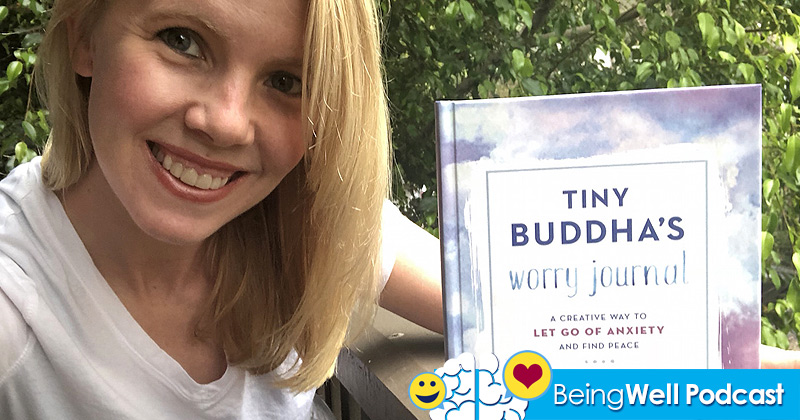21 Jan Being Well Podcast: Managing Worry with Lori Deschene

We’re joined today by Lori Deschene, founder of TinyBuddha.com and author of a variety of books including the new TinyBuddha’s Worry Journal, which came out this past June.
For many of us, worry and anxiety are constant companions. Forrest has a bit of an anxious temperament by nature, and is very familiar with just how paralyzing those underlying concerns can be – even when we know on some level that they’re irrational…or just aren’t that big of a deal.
That’s why he was joined today by Lori Deschene, founder of TinyBuddha.com and author of a variety of books including the new TinyBuddha’s Worry Journal, which came out this past June.
If you’re somehow not familiar with TinyBuddha, it’s an online community with over 1,700 contributors and more than three million monthly readers. It’s focused on helping people reflect on simple wisdom and apply it to their complex lives. Since it launched in 2009, it’s been a leading provider of personal growth related resources online.
In this episode Forrest and Lori explore:
- Lori’s personal experience with anxiety and worry, and how it led to her adventures into personal growth.
- How we can change our relationship with worry by focusing on the areas in our lives where we can exert control.
- Ways to bound the scope of our responsibilities in order to reframe accomplishment.
- The best advice she’s ever received about anxiety and worry.
- The personal practices that help her quiet an anxious mind.
Learn more about the Worry Journal and purchase your copy here: https://tinybuddha.com/worry-journal/
Timestamps:
2:30: What was the inspiration behind Tiny Buddha?
5:30: Has engaging with self-help made you personally happier?
7:45: Worrying about being enough.
12:10: Focusing on what you can control
14:00: Recognizing your own strength.
15:25: Using creative activities.
18:20: Returning to childlike joy.
21:45: Limiting responsibility to a comfortable level.
26:00: Acknowledging your everyday accomplishments.
27:30: Developing comfort with uncertainty.
32:00: Being honest with yourself.
34:00: Recap






